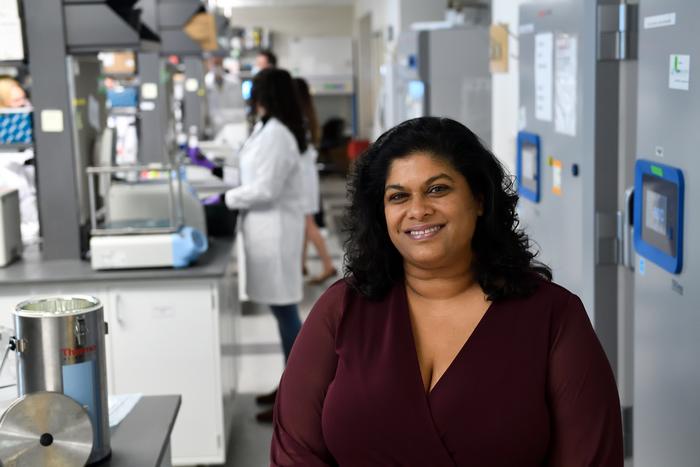Age-related changes that cause the skin to stiffen and become less elastic may also contribute to higher rates of metastatic melanoma in older people, according to research out of Johns Hopkins Kimmel Cancer Center.
The study, published March 12 in Nature Aging, shows that increased stiffness in aging skin increases the release of a protein called ICAM1. Increased ICAM1 levels stimulate blood vessel growth in the tumor, helping it grow. ICAM1 also makes the blood vessels leaky, allowing tumor cells to escape and spread.
“As we age, the stiffness of our skin changes,” explains Ashani Weeraratna, PhD, associate director for laboratory research at the Kimmel Cancer Center and professor of oncology at the Johns Hopkins University School of Medicine in Baltimore, MD, in a news release. “That not only has physical implications, but it also has signaling implications and can lead to increases in new blood vessel growth or disruption of blood vessel function.”
Previous research by Dr. Weeraratna and her team has shown that a protein called HAPLN1 helps maintain the structure of the extracellular matrix to keep the skin supple. As people age, they release less HAPLN1, which causes the skin to stiffen.
The new study shows that reduced HAPLN1 indirectly increases ICAM1 levels by causing stiffening, which alters cellular signaling. The increase in ICAM1 contributes to angiogenesis. The blood vessels are also leakier, making it easier for tumor cells to escape from the initial tumor site and spread to distant areas of the body.
Treating older mice with melanoma with drugs that block ICAM1, however, prevents these changes, shrinking their tumors and reducing metastasis, Weeraratna and her colleagues report. They are now studying ICAM1’s activities to develop more precise ways of targeting it with drugs, which might lead to new approaches to treating older people with melanoma.
The discoveries might also lead to new approaches to treating other age-related cancers.
“We know that age-related angiogenesis is important in many different cancers and multiple aspects of health and disease,” says Weeraratna, who is also the E.V. McCollum Chair of Biochemistry and Molecular Biology at the Johns Hopkins Bloomberg School of Public Healthand a Bloomberg Distinguished Professor. “Finding a new way to target that in different tumor types could have a big impact.”
Learning more about ICAM could also have important implications for understanding wound healing in older adults. Angiogenesis is essential in healing wounds not only in the skin, but also in the cardiovascular system and brain, Weeraratna says. As a result, the lab’s discoveries could have important implications for understanding age-related changes that may contribute to cardiovascular disease or strokes.
“Understanding angiogenesis in the context of aging is important,” she adds.
PHOTO CAPTION: Ashani Weeraratna, Ph.D.
PHOTO CREDIT: Will Kirk/JHU


